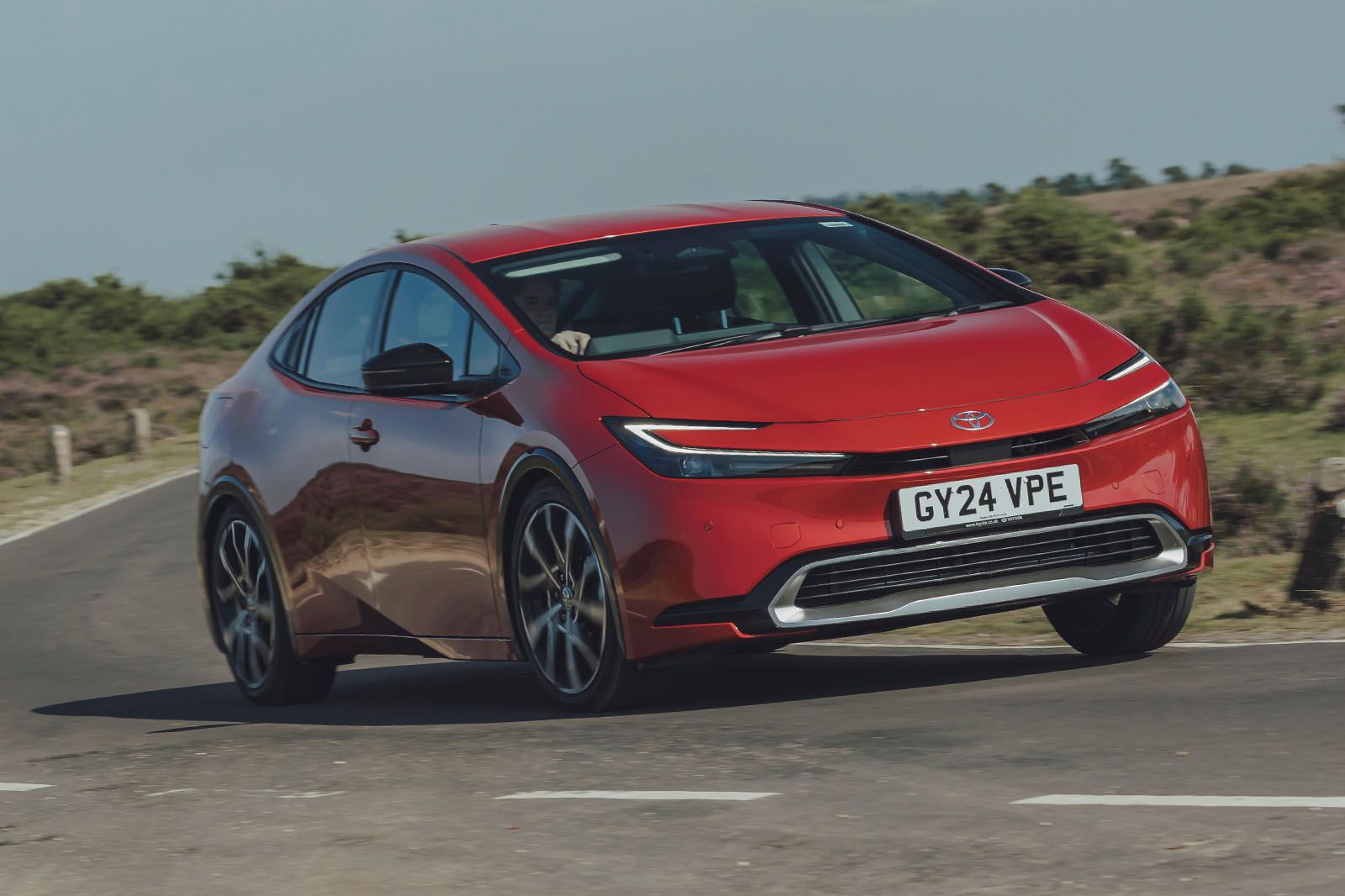Power comes from a 2.0-litre engine that makes 150bhp, mated to a 161bhp electric motor, with a total system output of 220bhp (because they don’t both blow maximums at the same time). The previous model made only 121bhp so that’s quite the boost – enough to give the latest car a 0-62mph time of 6.8sec.
This is an un-Prius-like kind of performance. It drives through Toyota’s electronic continuously variable transmission, called E-CVT, but it doesn’t act like a traditional CVT with pulleys and cones and whatnot.
It’s a brilliantly clever system that lets the drive motor and engine spin at whatever speed they need, via a planetary gearset. It has proven to be exceptionally reliable, as well as efficient. The plug-in battery sits beneath the rear seats, 13.6kWh of it, giving a 53-mile WLTP electric range. There are drive modes that will alter the blend of electric and petrol driving but the short of it is that, as was ever the Prius case, it’s designed to feel as un-weird as possible for a buyer not used to it.
And it’s a very pleasant drivetrain. For the most part, you’re able to nip around on electric power, given the substantial EV range; the typical journey is shorter than its abilities. When the engine does fire, it can be a bit grumbly, and the refinement drops under heavier acceleration, but that’s the case with many hybrid systems.

